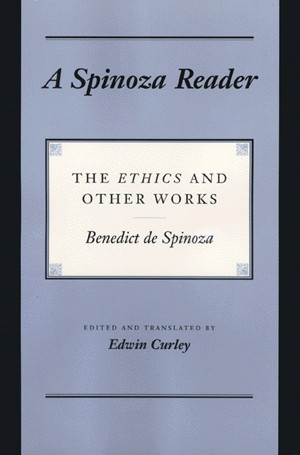Kate Holbrook, Ann S. Kim, Brian Palmer, Anna Portnoy (eds.): Global Values 101: A Short Course (2006)
Filed under book | Tags: · activism, economy, ethics, journalism, law, mass media, moral theory, politics, religion, sociology, war, women
![]()
Global Values 101 grew out of one of the most popular courses ever offered at Harvard University, in which some of the most original thinkers of our day sat down with students and explored how ideas have made them-and can make us-more engaged, involved, and compassionate citizens. In these engrossing, essay-length interviews, which address the topics of war, religion, the global economy, and social change, Amy Goodman, host of the popular radio program Democracy Now, speaks about the role of the independent media as gatekeeper and witness; Lani Guinier, author of Tyranny of the Majority, reveals that students’ SAT scores more accurately describe the kind of car their parents drive than the grades they will earn in college and shows the way to a more equitable college admissions system; Howard Zinn, author of A People’s History of the United States, explores the American Dream and exposes the myth of the “good war”; economist Juliet Schor, author of Born to Buy and The Overspent American, explains why Americans are willing to sacrifice quality of life to attain financial success; former “mall rat” Naomi Klein, author of No Logo: Taking Aim at the Brand Bullies, urges readers to go global while fighting global conglomerates; and Katha Pollitt, author of Reasonable Creatures: Essays on Women and Feminism, employs her incisive wit to explore what it really means to be a feminist in the Twenty First century.
For anyone who has been moved by idealism and longed to become a more proactive citizen, this collection offers a range of stories on how progressive ethics can inform, inspire, and ultimately transform lives.
Publisher Beacon Press, 2006
ISBN 0807003050, 9780807003053
276 pages
Benedict de Spinoza: A Spinoza Reader: The Ethics and Other Works (1994)
Filed under book | Tags: · ethics, philosophy, religion, science

“This anthology of the work of Baruch de Spinoza (1632-1677) presents the text of Spinoza’s masterwork, the Ethics, in what is now the standard translation by Edwin Curley. Also included are selections from other works by Spinoza, chosen by Curley to make the Ethics easier to understand, and a substantial introduction that gives an overview of Spinoza’s life and the main themes of his philosophy. Perfect for course use, the Spinoza Reader is a practical tool with which to approach one of the world’s greatest but most difficult thinkers, a passionate seeker of the truth who has been viewed by some as an atheist and by others as a religious mystic.
The anthology begins with the opening section of the Treatise on the Emendation of the Intellect, which has always moved readers by its description of the young Spinoza’s spiritual quest, his dissatisfaction with the things people ordinarily strive for–wealth, honor, and sensual pleasure–and his hope that the pursuit of knowledge would lead him to discover the true good. The emphasis throughout these selections is on metaphysical, epistemological, and religious issues: the existence and nature of God, his relation to the world, the nature of the human mind and its relation to the body, and the theory of demonstration, axioms, and definitions. For each of these topics, the editor supplements the rigorous discussions in the Ethics with informal treatments from Spinoza’s other works.”
Edited and translated by Edwin M. Curley
Publisher Princeton University Press, 1994
ISBN 0691000670, 9780691000671
280 pages
PDF (11 MB, updated on 2021-6-23)
Comments (2)Chantal Mouffe: The Democratic Paradox (2000–) [EN, ES, PL]
Filed under book | Tags: · agonism, agonistic pluralism, antagonism, deliberative democracy, democracy, ethics, neoliberalism, philosophy, pluralism, politics, social democracy

“A new understanding of democracy that acknowledges the inescapable and essential antagonism in its workings.
From the theory of ‘deliberative democracy’ to the politics of the ‘third way’, the present Zeitgeist is characterized by attempts to deny what Chantal Mouffe contends is the inherently conflictual nature of democratic politics. Far from being signs of progress, such ideas constitute a serious threat to democratic institutions. Taking issue with John Rawls and Jürgen Habermas on one side, and the political tenets of Blair, Clinton and Schröder on the other, Mouffe brings to the fore the paradoxical nature of modern liberal democracy in which the category of the ‘adversary’ plays a central role. She draws on the work of Wittgenstein, Derrida, and the provocative theses of Carl Schmitt, to propose a new understanding of democracy which acknowledges the ineradicability of antagonism in its workings.”
Publisher Verso, London, 2000
ISBN 1859842798, 9781859842799
143 pages
The Democratic Paradox (English, updated on 2017-10-16)
La paradoja democrática (Spanish, trans. Tomás Fernández Aúz and Beatriz Eguibar, 2003, added on 2020-10-23)
Paradoks demokracji (Polish, trans. Wojciech Jach, Magdalena Kamińska, and Andrzej Orzechowski, 2005, added on 2020-10-23)

